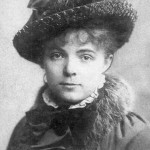We’ll be publishing some exclusive new short stories on the blog. Right now Brian is just finishing up on a months’ worth of writing a short story each day so look out for plenty more!
—————————
Derek Barnes paced back and forth, thinking joyfully how wonderful he was.
Never had he felt such delight before. His ambitious mural had just been accepted by the town council. It would form the centrepiece of the planned memorial to the Fallen of Royal Signals (financed by a wealthy local man who had served in Signals in WW2). That was a part of Barnes’ developing artistic side-line.
And on the same day that the mural was officially accepted, Barnes had been appointed to a position he had long been fishing for, Chair of the Linklater Chair of Popular Literature, at the univeristy.
And he was thirty-two. On the way up! Yes, he had ood reason to think well of himself. He had always thought badly of himself, after his miserable upbringing and the oppression of a bullying father.
Hardly able to wipe a smile from his face, he returned to his apartment in the street behind the university. The place had become more crowded: not only had more books piled up, but his paints and canvases and equipment had spread from a corner of the room to cover much of the floor.
As he poured himself a small celebratory glass of pino grigio, he noticed that a message awaited him on his ansaphone.
It was his mother speaking. She said that his dad was seriously unwell – she empathised unwell – and asked him to come down immediately.
“Bugger it! How can I? I’m too busy,” he told himself.
He picked up the phone. Even while dialling the home number, he decided he must go as requested – much though he disliked his father.
He recognised the answering voice. Not Monica, his mother, but Ram Ram. Whom he had used to call Auntie Ram in earlier days.
“Oh, so you come to see us! Your daddy is in a bad way, but we all wish to see you and give you some kiss!” She laughed.
Barnes made a couple of calls to his section before going down to his car on the forecourt. He phoned his friend Eva Iris, asking her to buy the local paper for him on the morrow. It was a long drive south, and the sooner he got started the better.
Just after six o’clock in the evening, he reached the old family house on the outskirts of Offinty ham. The day was still and overcast, with high summer cloud.
The house stood alone, although a row of small terraced houses was nearby. The house in which Reggie Albert Barnes lived isolated itself behind a tall brick wall. Many of the bricks were crumbling.
Derek Barnes hesitated by the front door. Silence confronted him, together with fossil memories of exclusion.
A voice from a window above the door called to him.
“Derek? I’ll be down in a moment. Don’t go away!”
He waited.
After some delay, Monica opened the door and let him in.
She had aged since they last met. Her hair was grey and lax about her shoulders. She wore slippers and an old blue dressing
-gown over a flimsy dress.
“I’ll get him up in a moment,” she said. “Come in. Don’t stand there.”
He followed her. Monica Barnes was the divorced wife of
Reggie Barnes. She led him into the kitchen, where Ram Ram, Reggie’s second wife, a Hindu from Calcutta and also divorced, was preparing her ex-husband’s supper, together with a snack for them all.
“Sit your self down. He’s been like this for some weeks. Up and down, poor man.” She gestured with a soup spoon.
“Heart attack after heart attack,’ agreed Monica. “Makes a terible row.”
“Awful,” agreed Ram Ram.
It appeared that all the energies of the two ex-wives were concentrated on the sick man. They had no questions for Derek. He sat quietly at the table, sipping the cup of coffee Ram Ram gave him, regretting that he had forgotten Ram Ram’s real first name. Ram Ram she had always been. He liked her more than he liked his cold mother.
Ram Ram had dyed her short hair black and reverted to a sari, so that she was the smarter of the two women. But they seemed united enough.
Derek knew their histories. Reggie, his father, had run a grocery store. Monica was a village girl who worked for him.
Reggie married her and ruled over her. She found sanctury in the arms of a traveller, and so a divorce came about.
Reggie, in quest of a more exotic aspect for his store, went to India in quest of ginger and other items. There he met Siri Mavo, a well-connected lady, and fell in love with her. Siri Mavo had got herself into religio-political trouble and was happy to be invited to England. Her names being too much for Reggie (‘silly’ being his word for them), she became Ram Ram from the start.
The customers of the grocery store were charmed by Ram Ram, but those customers were becoming scarcer. A new supermarket had opened down the street. Gradually, week by week, Reggie’s trade died. Becoming bitter, he locked his inoffensive wife up in the store. She phoned the police.
Reggie was placed under arrest, and that was the end of his store and of his second marriage.
Derek was well aware of this history and of his own ill-treatment by his father. The question teasing him, as he approached his father’s bedroom was, Why were these two ladies, father’s ex-wives, so loyal to him.
Old Reggie Barnes was fully dressed at this time, sitting on the side of his unmade bed. He looked pale and bedraggled.
He brightened up at the sight of Derek. “It’s good of you to come and see your poor old dad. How’re you doing?”
Smiling, Derek began to say that he had just had two enormous strokes of luck, and –
”Save it for later, old lad. I want to get out in the garden.”
Out into the small garden they went, Derek with a steadying hand on his father’s arm. The day was preparing to close down. Small rose bushes grew here, all neatly pruned, with standard roses between them. A little fire was burning, away from the house.
Derek, who took no interest in gardens, started to say to his father, “I’m doing quite well, dad. One of my biggest paintings has been accepted by – “
“Son, this painting business will get you nowhere,” said his father, firmly. “Trade’s the thing. Buy yourself a small grocery business away from these supermarkets. They’ll never last, and – “
“Dad, sorry, you don’t understand. I’m a painter, okay? No argument about it.”
The old man broke from Derek’s light grasp. “Life’s so difficult, so difficult.” He wiped saliva from his lips with the sleeve of his jacket. “You’d never take advice, would you? Always difficult, like everything…”
With tottering steps, he walked
over to the fire and stood looking down at its feeble blaze.
He removed a small pair of secutors from his jacket pocket, clipped an inch off the nearest bush, and dropped the piece on the modest blaze.
“I’ve kept this bonfire going for two weeks now,” he said with some pride. “Two weeks. Two weeks and one day…”
Derek said nothing. Tears came to his eyes. So this is how it ends… Surprised, he found he forgave his old father his cantankerous nature, all his errors, everything.
He asked what his father did when it rained.
An ancient metal washtub lay nearby, The old man hauled it up by a handle. His face broke into a proud grin.
“I cover my fire up with this. So it never goes out.”
Father and son stood together. Without another word, they watched a thin trail of smoke rising up from the flame. It seemed to go tremblingly but unceasingly into the air and dispersing.
That evening, Derek ushered the two women away and sat by his father’s bed, on which the old fellow lay silent, head on pillow, mouth open. The low sun sent in a beam through the window which half-filled the little ground floor room with a solemn gold.
Once, the father moved restlessly under the blanket.
“You all right, dad?”
“Fine, son.”
And at about nine o’clock that evening, he died.





